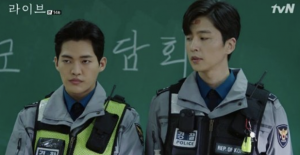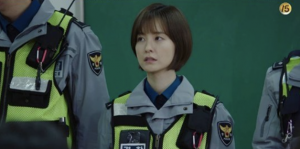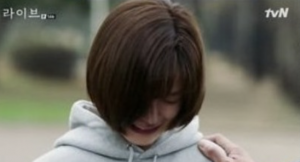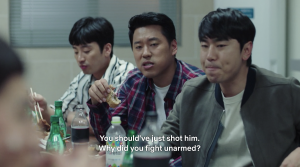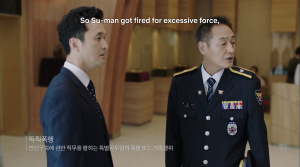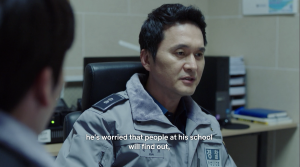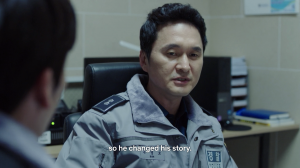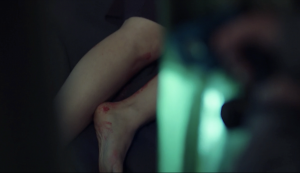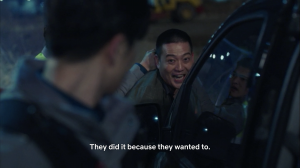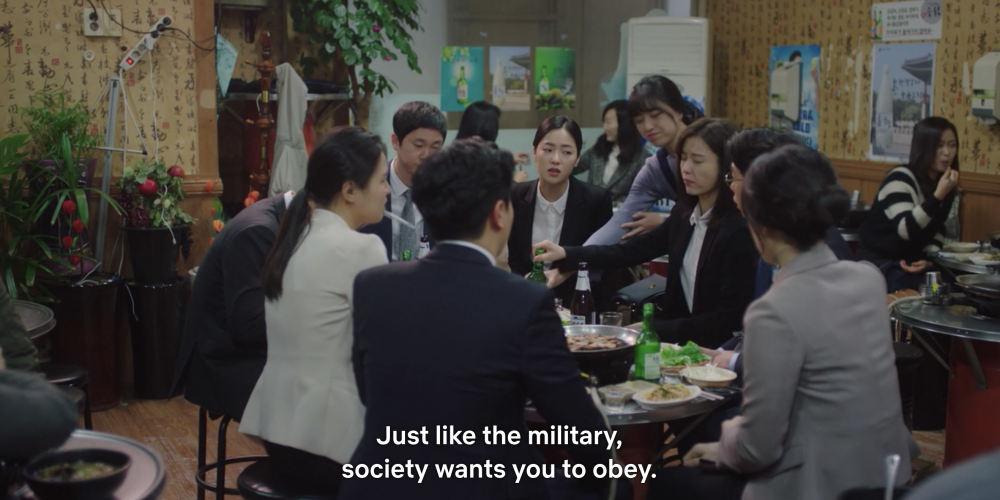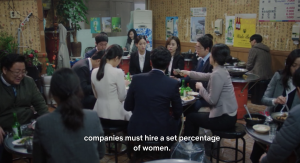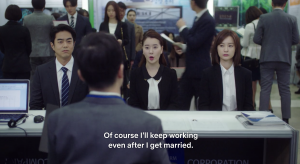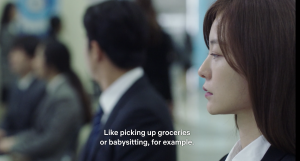Synopsis:
In episode 17, Yi Sam Bo retired and spent boring time. After his retirement, Han Jeong-O requested a leave and planned to study abroad. Also,Yeom Sang Su and O Yang Chon received a report that the suspect ran way to the park. While they patrolled the park, Yang Chon found a teenager who was stabbed, and the suspect suddenly stabbed Yang Chon. Sang Su found that Yang Chon was attacking, so he shot the gun at the suspect. However, Yang Chon eventually fainted away, and Sang Su was depressed, so his mother let him quit the job.
Discussion:
In this episode, Yi Sam Bo retired because of his age. After he retired, he spent boring time and missed his job with watching some issues on the media. As shown in this episode, some Koreans’ elderly lives are lonely, and their life satisfaction after retirement may not be happy. This is one of Korean’ social issues, and we, including Korean government, should think of this problem.
In last Tuesday class, Dr. Saeji mentioned about the suicide, and Korean elders have higher rate of suicide because of their lonely lives and low quality of life satisfaction. Cha and Lee find that social supports such as family support, friends support, other significant support bring direct effects on elders lives (2018: 456). Based on this article, the reason is why Korean elders are more likely to commit suicide that their families, friends, or organizations do not really care of them, and they just put elders alone in a rural area with basic support such as giving small amounts of money or food, not interacting emotionally each other. I believe that elders need interaction with others, not just providing basic support.
However, there is an irony because I guess Korean elders are unwilling to get support from their families and friends because they do not want to be burden to their families and friends. For my personal example, my grandmother lives in Daegu, and my family lives in Seoul, so because of long distance, my grandmother does not want my family to come Daegu when she needs to go hospital because she thinks that my parents may be tired to visit there. However, I think although elders do not want to get support, the family should have responsibility to care them.
In particular, Korea does not have well-developed pension systems for elder people yet, so seniors usually face financial difficulty after they retired from their main job (Cho and Lee, 2013: 193). Therefore, to support themselves and their spouse financially, they cannot enjoy their lives after retirement. Instead, they may work with an unstable job, even though they retired from their original job.
The number of elders in Korea is increasing, while the number of babies is decreasing . I think Korean government should consider specific welfare for elders, not just focusing on providing economic welfare.
I ask you guys to consider these questions:
1. Imagine if you were a member of the organization to help elders. How would you help them personally?
2. How can the Korean government improve their welfare for elders to prevent suicide of elders?
(word count: 525)
Bibliography:
Cha, Kyung Sook and Lee, Hung Sa. “The effects of ego-resilience, social support, and depression on suicidal ideation among the elderly in South Korea.” Journal of Women & aging 30, no. 5 (2018): 444-59.
Cho, Joonmo, and Ayoung Lee. “Life Satisfaction of the Aged in the Retirement Process: A Comparative Study of South Korea with Germany and Switzerland.” Applied Research in Quality of Life 9, no. 2 (2013): 179-95.
